INNOVATIVE TEACHING SHOWCASE
WWU Profiles
While only three instructors can be fully featured each year in the Innovative Teaching Showcase, clearly there are many educators doing the essential work of this year�s theme: Infusing Multicultural Perspectives into the Curriculum. This year's Showcase includes this Profiles section to provide a more complete picture of the work WWU instructors are doing and to inspire others to try teaching inclusive strategies and designs (see also, Ideas) implemented by our WWU colleagues.
Brian Bingham and the Marine Sciences Undergraduate Program Team
Shannon Point Marine Center
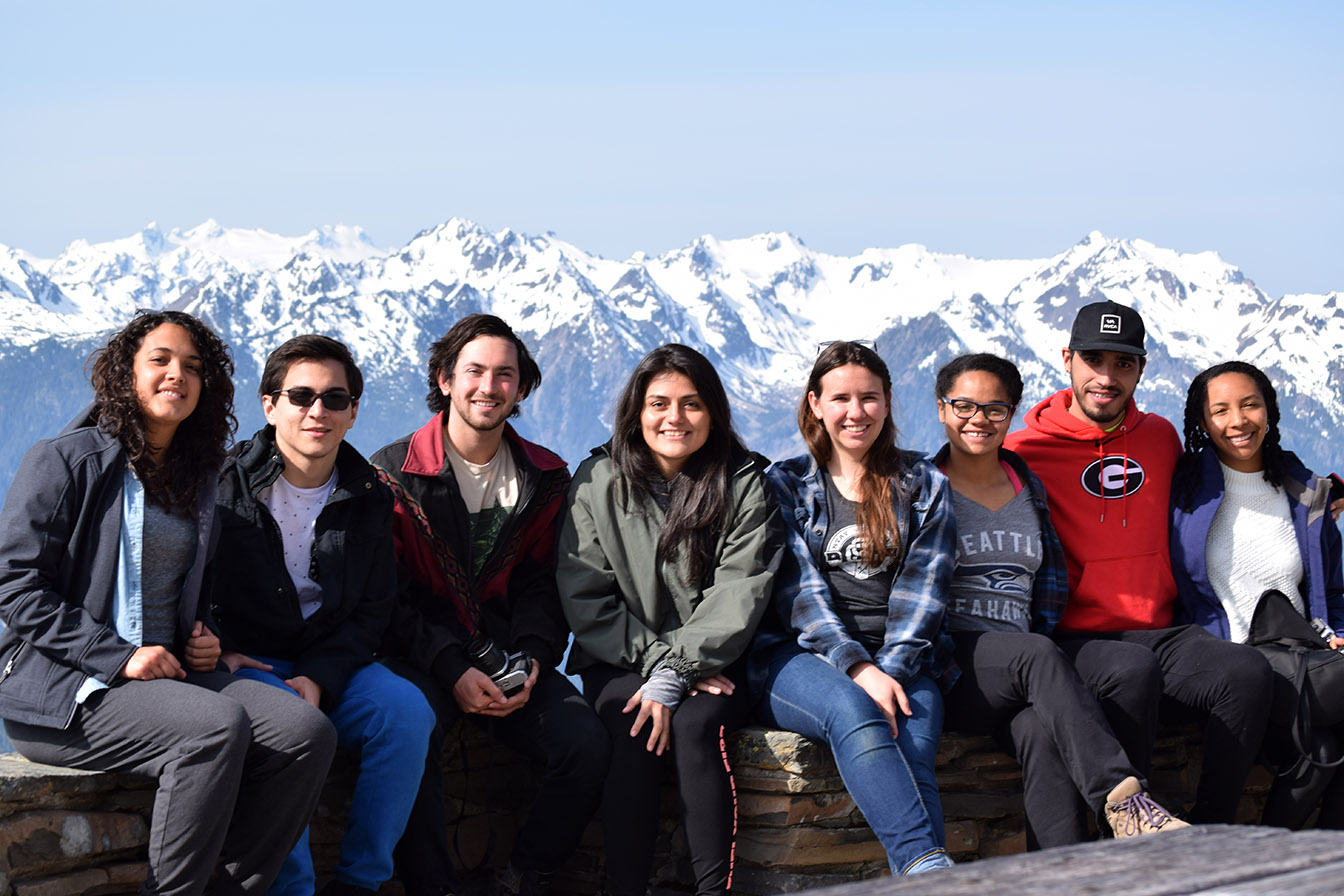
The Multicultural Initiative in the Marine Sciences Undergraduate Program (MIMSUP) is a unique and innovative program (NSF funded, 1991-2015) that supports groups that are normally underrepresented in the sciences (Latino/Hispanic, African American, Pacific Islander, Native American, or Native Alaskan). Students spend their winter and spring quarters in residence at the Shannon Point Marine Center (SPMC). MIMSUP
- Trains, supports, and inspires students through the integration of formal coursework, research mentoring, and informal guidance that produce an ideal learning atmosphere for students.
- Produces remarkable results, with 99% of MIMSUP alumni completing B.S. degrees and 56% going on to advanced education.
- Recognizes the value of every student as well as building diverse student communities and a connected network of active alumni.
Nicole Brown
Department of English
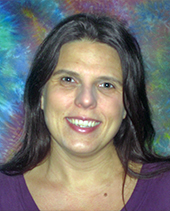
Through her coursework, Nicole Brown promotes two main characteristics: technical writing and social change, in order to teach students the importance of writing in a way that is respectful and fair towards others, even when other beliefs may differ than their own.
- ENG 203: Writing in Context: Discovery & Action
- Encourages students to use class discussion and writing projects as methods to unlearn dominant, oppressive discourses.
- Leads students to discover, research, and publically communicate through writing on topics of social change.
- Teaches students how to enter conversations with audience that come from diverse cultural backgrounds and therefore may hold different life experiences, values, and expectations than those of the students.
- ENG 462: Writing Social Change
- Promotes tolerance and acceptance of individuals from different backgrounds by breaking students into teams that design and carry out a community-action project on a topic of their choice. This provides a learning experience that goes beyond the classroom.
- Promotes the utilization of a variety of strategies such as audience analysis and message framing as well as different forms of public writing and media tools in order to reach people from mediums, regardless of cultural differences.
Joanne DeMark
LEADS - Western's Leadership Advantage
Karen W. Morse Institute for Leadership
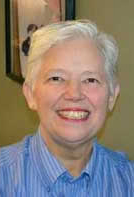
Joanne DeMark has achieved 40 years of leadership experience in multicultural education, social sustainability, cross-cultural dialogue, and social justice. These skills have translated in the classroom in a multitude of ways.
- LDST 420: Foundations for Student Leadership
- Goes beyond providing the usual history of leadership by integrating a counter-narrative that articulates the roles of people of color, women, and other under-represented groups into the curriculum.
- Begins with student introductions consisting of not only names and majors but also positive identifications of various primary and secondary identities, creating a safe space that promotes wider inclusion of all identities.
- Utilizes textbooks that exemplify DeMark�s goals of embedding inclusion and diversity principles within an instructional design. Employs authors from a variety of cultures that promote global leaders who may go unrecognized by other Western curriculums.
- Assigns students a project that requires the production of a leadership poster including a case study of a leadership practice or multicultural leadership principle in action, thus allowing students to learn dialogue methods for addressing cross-cultural differences in groups.
Larry Estrada
Fairhaven College
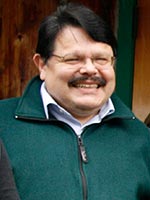
Larry Estrada takes on many different facets of educating students from a global perspective. One area of focus is the post 9/11 United States and the ways in which perceptions of different cultures changed. Estrada has spent time analyzing how hate crimes, ethnic jokes, and verbal and physical abuse grew to astonishing levels. While incidents may have decreased in the past few years, the �otherness� is far from gone.
- FAIR 337L: Race, Culture, and Society in the Latino Caribe
- Sends students to a country through a program that provides Spanish language training and seminars, as well as lectures on history, culture, and the politics of the Caribbean region. This forces students to acclimate to the culture and learn about it from a first-hand perspective.
- Requires that students participate in a designated service-learning project with Dominican students.
- ACS 301/ FAIR 366E: Comparative Cultural Studies
- Focuses on the sociological aspects of ethnic/minority relations within the larger society, especially for non-white subcultures in the U.S.
- Assigns an ethnographic interview assignment
- Involves interviews with individuals who represent an ethnic group different than the student�s.
- Allows for students to analyze what they learned post-interview.
James Fortney
Department of Communication Studies

James has thoroughly infused Communication Studies with diverse perspectives through his course materials and instructional strategies and his promotion of sensitivity towards multicultural issues including, but not limited to, race/ethnicity, social class, gender, and sexual orientation. He creates an environment where students feel safe to explore fundamental topics such as biases and stereotypes against marginalized groups and how such biases may be present in one's own identity.
- COMM 260: Communication, Identity, and Difference (view syllabus)
- Requires students read, in addition to influential theoretical works, autobiographical writings by people of color, queer people, and disabled people many of which have not been read by students due to mainstream perspectives that are present in a great deal of curriculum in the United States.
- Students feel safe to explore the ramifications of the assigned readings and participate in active learning exercises.
- COMM 498: Communication Ethics (view syllabus)
- Assigns a range of scholarly articles that deal with race, gender, sexuality, and disability as well as advance intercultural understanding and assist students to evaluate institutional prejudices and policies.
Jill Heckathorn
Department of Physical Education, Health, & Recreation
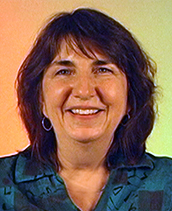
Jill Heckathorn says, �Those of us teaching in a human service discipline have the opportunity to put these efforts [towards aspiring to address inclusion, diversity, and differences in their courses] at the heart of our work.� In line with this, she uses her curriculum to advocate for acceptance across multicultural groups, whether this culture is race, age, or sexual orientation. In her courses, she goes beyond teaching tolerance and promotes that students should be in a position to empower and enhance the lives of others, regardless of cultural identity. Further, she uses her courses to link students with opportunities to both review their beliefs and potential biases and also respectfully explore differences with others.
- REC 385: Leisure and Aging
- Aims to assist students in understanding multicultural considerations of older adults and the ways in which their age is a multicultural aspect of their selves.
- Partners students with an older adult whom they meet with weekly for conversations and activities surrounding course topics, thus promoting inclusion, patience, and respect of differences, among other themes.
Kristiana Kahakauwila
Department of English
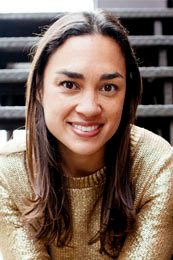
Kristiana Kahakauwila introduces students to Oceania through its history, literature, and contemporary political issues by using readings, free-writing assignments, and formal essays that are built around acknowledging and then dismantling assumptions about the Pacific and its indigenous peoples. Further, she promotes student-led projects and the questioning of the ethics of creative writing workshops. How Euro-American concepts of historiography, sexuality, gender, race, ethnicity, and familial structures frame students' understanding of the world is discussed and debated with the goal of undermining white privilege and promoting culturally sensitive reading and methodology across the disciplines.
- ENG 333: Topics in Global Literature (view syllabus)
- Focuses on literatures of Oceania, with texts by both indigenous and �local� non-indigenous authors.
- Challenges the academic assumptions under which students have been educated and asks students to critically engage discourses around race, identity, gender, sexual orientation, environmental conservation, and U.S. military occupation.
- ENG 456: Special Topics in Fiction
- Uses the first person plural (ie: �we�) as a locus for discussing ideas of community and family.
- Compares Euro-American and trans-Indigenous uses of the first person plural.
- Studies creative writing craft in order to question the privilege given to Euro-American canonical texts, notions of aesthetic beauty, and creative writing techniques (including plot, character, and temporality).
Monique Kerman
Department of Liberal Studies
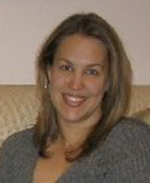
In this class, Dr. Kerman helps students learn methods of refraining from prejudice and instead critically assess every source of information for bias.
- LBRL 276: Humanities of Africa (view syllabus)
- Has a syllabus designed around the concept of debunking stereotypes of Africa and Africans as �primitive,� and promoting the genuine appreciation for the intelligence, creativity, and humanity of people of African descent, both on the continent and in the diaspora.
- Begins class with a current event chosen to encourage a broader view of African news than what may be seen on mainstream media.
- The course itself begins with a focus on Western stereotypes of Africa, the origins of such assumptions, and the ways that institutions of history, government, and the media perpetuate these assumptions. The class then goes on to focus on Africa�s sophistication and connectedness to other continents through trade and religion. These themes show the stark contrast between examples of Africans� own narratives and those created by Western society.
Ee Lin Lee
Department of Communication Studies
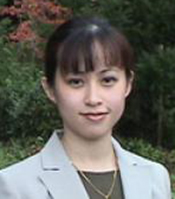
In her classes, Professor Lee explores issues of white privilege and specifically how that privilege creates assumptions, sampling methods, and operational variables that generalize research conduction in Western, educated, industrialized, and developed societies as being representative of everyone.
- COMM 420: Communication Theory
- Encourages intercultural dialogue that promotes social justice by problematizing the dominant perspective in research.
- Challenges the normalized, unspoken academic assumptions that specifically focus on the ways heterosexual, Western, White, well-educated males view social interaction and do things. She teaches students to critically question what is often taken-for-granted in discourse on race/ethnicity, social class, language, gender, and sexual orientation.
- COMM 325: Intercultural Communication
- Focuses on the dynamics of culture and communication, emphasizes critical cultural consciousness, and challenges students to deconstruct power systems that privilege certain segments of society.
- Main topics include, but are not limited to: �White privilege� and the systematic damages it holds, how heterosexual, romantic love between people of different races can be racist, and how to tackle injustice in order to promote inclusive communication.
- Features assignments that require students to critically think about assigned readings and ways in which they might be problematic when considering multiculturalism.
Mary Metzger
Department of English
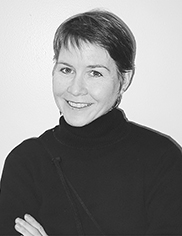
Mary Metzger is currently in the process of learning to queer her classroom by not only teaching queer history but by creating a safe space for queer students and educating others about the unconscious ways in which binary gender roles are cemented as the norm in public spaces. Metzger does so by beginning class with a personal introduction including name and preferred pronouns and by no longer calling roll on the first day. Allowing students to introduce themselves allows them to have more freedom to determine whom they present as in the classroom. Further, this begins to open the discussion of unconscious normative expectations that people may have (not only of gender, but race, class, ability, etc.) and creates a classroom setting revolving around honest and caring dialogue that resists exclusivity.
Multicultural Faculty Fellows
Woodring College of Education
According to its vision statement, The Woodring College of Education �fosters community relationships and a culture of learning that advances knowledge, embraces diversity, and promotes social justice.� Fellows follow this as well as the college�s commitment to diversity, as �transformational change that supports increased understanding and respect for differences and similarities among people and cultures� is the forefront of their mission. This commitment is evident through the practices promoted among the faculty fellows.
- Meets weekly to discuss the field of multicultural education and how teaching must move beyond rhetoric towards action and engagement with the challenging realities of marginalized students.
- Discusses the definition of multicultural education and social justice, the complexities of faith, race, and ethnicity, culturally responsive teaching, accountability, and critical pedagogy, among many other themes.
- Uses �Where I�m From� poems to promote inclusivity and a safe environment for all discussion group participants.
Carolyn Nielson
Department of Journalism
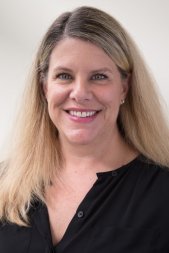
Carolyn Nielson spent much of her time as a journalist covering underrepresented communities, which effectively taught her to communicate in different ways. This is apparent through her coursework, which encourages students to think critically about their environment in regards to diversity and ethics in journalism through: diverse readings, case studies, and opportunities to work outside the classroom.
- JOUR 375: Diversity, Mass Media, and Social Change
- Aims to familiarize students with multicultural concepts such as: unearned privilege, intersectionality, and Critical Race Theory.
- Helps students build media-literacy skills necessary to question mass news media, see news media through different and diverse perspectives, and to be aware of the ways in which news media may reinforce stereotypes.
- Promotes the use of �I� statements, forcing students to express only their own experiences and reactions, not those of others.
- JOUR 351: Mass Media Ethics
- Teaches students methods of recognizing ethical issues in journalism, with a focus on issues faced by a diverse audience.
- Encourages critical analysis of media outlets and the information they provide that may hold cultural biases.
- Questions students� assumptions and teaches them to recognize and avoid stereotypes.
Michael Slouber
Department of Liberal Studies

Professor Slouber introduces students to Indian civilization through history, literature, and religion. He introduces controversial cultural issues like the caste system and gender inequality by dispelling persistent myths and by comparing injustices in South Asia to similar discriminatory social structures in Western civilization.
- LBRL271: Humanities of India
- Keeps the playing field leveled when areas that South Asian civilizations have been widely criticized for (such as the caste system) come up in discussion by challenging students to view their own civilization or culture with an equally critical eye.
- Creates a curriculum that balances male and female authors with perspectives from minority groups and voices of socially marginalized thinkers.
- Uses a three step model for essays and provides individualized feedback to each student.
Joseph Trimble
Department of Psychology
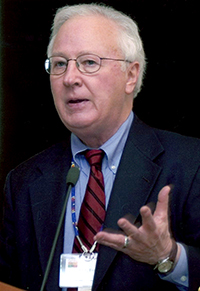
Joseph Trimble has dedicated much of his time to educating students on cross-cultural psychology, exploring the links between cultural norms and individually expressed behavior.
- PSY 441: Seminar in Cross-Cultural Psychology
- Introduces students to the field of cross-cultural psychology and assists in developing a set of critical-thinking tools in order to evaluate psychology from various ethnic, national, and religious groups.
- Promotes a deep understanding of cross-cultural psychology and its implications, by assigning students readings written by a diverse collection of individuals over a variety of topics. Such topics include: psychological disorders, the methodology of cross-cultural psychology, social interaction, emotion, and cognition. Students are expected to discuss and critically analyze the ways in which these themes are present in different cultures through weekly submissions of short essays.
- Instructs students to write a paper discussing the presence of psychology in a foreign country. This allows for students to research and gain a fresh perspective on a field that they have spent years learning about through a Western lens.
Glenn Tsunokai
Department of Sociology
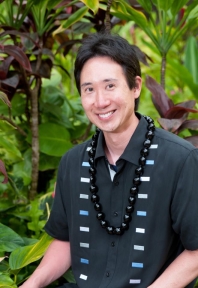
Glenn Tsunokai has pursued research on the effects of individuals� socioeconomic status, community, and race/ethnicity on outcomes such as crime, drug abuse, and disparities in medical treatment. His interest in race and ethnic relations as well as stratification are evident in the coursework offered to students.
- Sociology 269: Race and Ethnic Relations
- Uses first person documentaries at the beginning of class sessions to effectively elicit empathy and a more humanistic understanding of individuals from different cultures who are often grouped as �others.�
- Employs topics designed to allow students to see where they may be acting in maintaining, often times implicit, racism.
- Educates students on tools to change potentially biased attitudes and perspectives.
Anne Tuominen
Department of Sociology and Extended Education
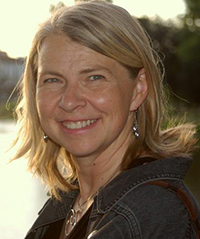
Anne Tuominen challenges her students to look at individuals from different cultures through a wider lens that encompasses the many sociological features that religious followers have in common despite religious affiliations, belief systems, and practices.
- SOC 342: Sociology of Religion
- Utilizes weekly online learning exercises that include analyses of religious marketing, discussions about religious paraphernalia, and reflections about religions� propensities towards peace and violence.
- Introduce weekly objectives, readings, and lectures to students in an easily accessible fashion via the Canvas LMS.
- Encourages students to think critically about multicultural, gender, class, and other differences in religious identity, practice, and experience.
- Aims for students to consider immigrant religious experiences in the U.S., women�s defections in places in Israel and Mormon America, and religious conflicts among and between true believers and false ones, among many other themes surrounding multiculturalism.
Edward Vajda
Modern and Classical Languages
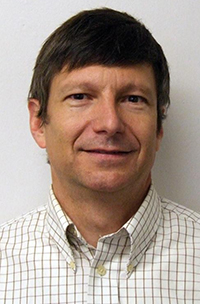
Edward Vajda actively brings together linguistic and cultural knowledge from diverse corners of the globe to assist students in their understanding of present and past world cultures. Further, he exposes students to cultures that may seem remote, but in reality have histories that are quite relevant to our current culture.
- EA 210: Introduction to Nomadic Cultures
- Examines the traditional lifestyles of native peoples of the vast Eurasian region, which exposes students to cultures they may have never been exposed to before.
- Effectively teaches acceptance and understanding of different traditional cultures.
- EA 314: The Mongols
- Students learn why Chinggis Khan is arguably one of the most significant historical figures of the past millennium even though he may not often be discussed in Western curriculum.
- Offers an unexpected relevance to students� full understanding of world history.
- RUSS 110: Beginning Russian
- Immediately immerses students into the language in an engaging and thoughtful manner by not using English on the first day of class.
- Promotes an interactive classroom that builds a solid active as well as passive knowledge of Russian.
- Puts emphasis on not only the language, but the Russian culture as a whole.
Joy Wiggins
Department of Elementary Education
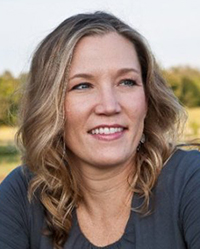
Joy Wiggins� courses include a variety of perspectives through the diverse literature and content that she exposes her students to. For example, students read about international and local perspectives that focus on creating community, which effectively teaches students how to connect through commonalities and differences among themselves and how to transform not only pedagogical practices but perceptions of the world and the people inhabiting it. Wiggins takes advantage of materials that vary in format, such as graphic novels, song lyrics, spoken word, and videos to enhance the perspective that is being read about during any given week. Further, Wiggins notes that she �most importantly� facilitates the classroom and provides resources for students to critically discuss, allowing them to take the lead on the discussions instead of simply listening to a lecture. In her English courses, students map Bellingham schools� community assets, attend family involvement activities at the schools, and learn how to deconstruct their own ways of viewing and accessing the world.
Kathleen Young
Department of Anthropology

Kathleen Young actively engages students in all aspects of human life in a cross cultural-setting. On why teaching this is important, she says �all humans die, but sometimes students feel they have minimal understanding about death in their own culture and even less about other cultures constructions of dying and death.�
- ANTH 417: Cross-Cultural Law
- Exposes students to the history of international law and the prevalence of the concept of law and punishment in other cultures.
- Studies the implications of religious law on punishment in different cultures, which is especially important in regards to religious groups that may be presented in a biased fashion via mass media.
- Analyzes how constructions of gender, race, and class, may differently affect law in various cultures.
- Uses a diverse collection of teaching methods, including field trips, films, and class presentations which allows for the fact that the rules of law do not always translate the same way cross-culturally to settle in students� minds.
- ANTH 457: Anthropology of Death and Dying
- Examines how the concept of death and dying are culturally constructed.
- Takes students on tours of cemeteries, ranging in cultural association.
- Focuses on death and dying through the lens of various cultures.


